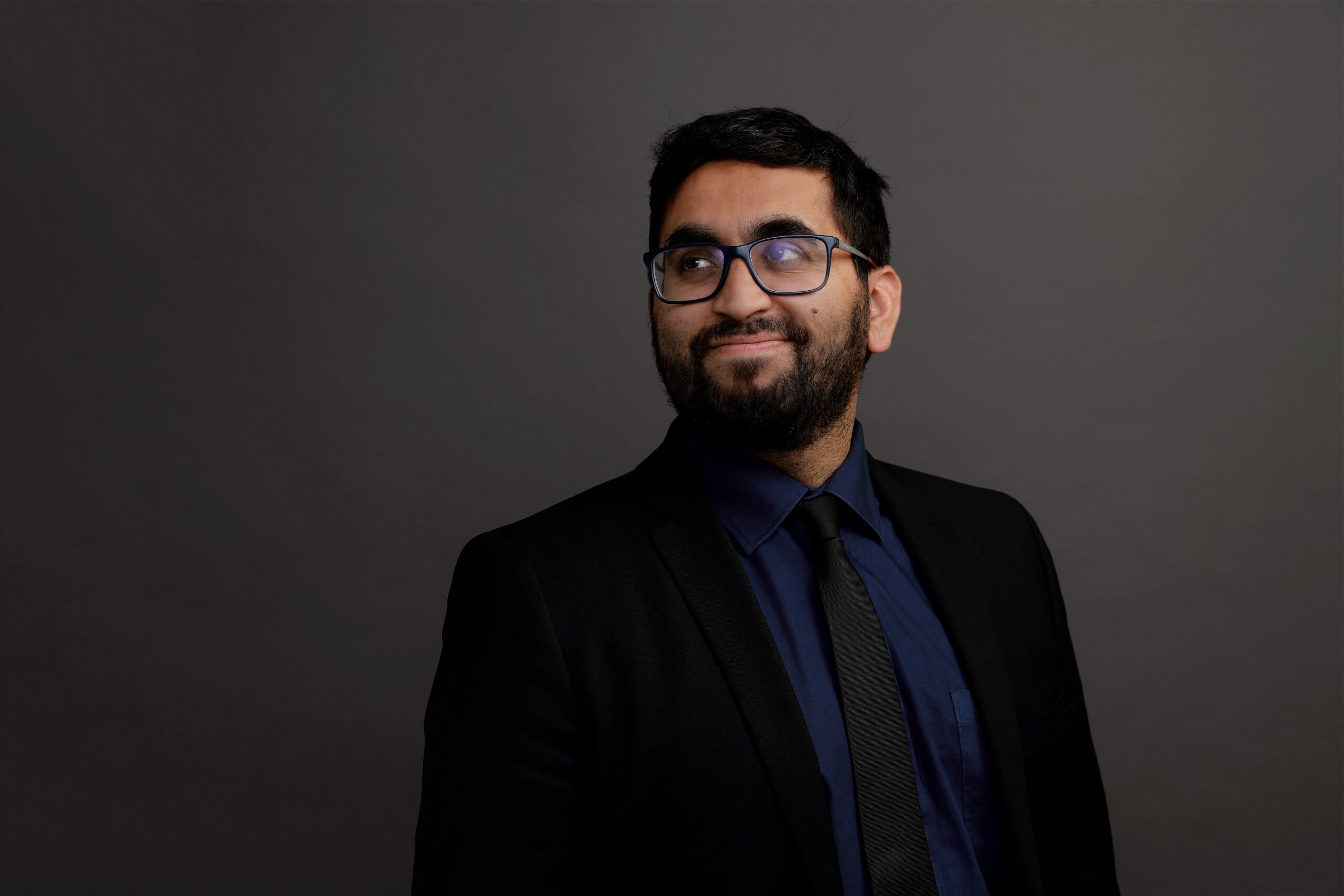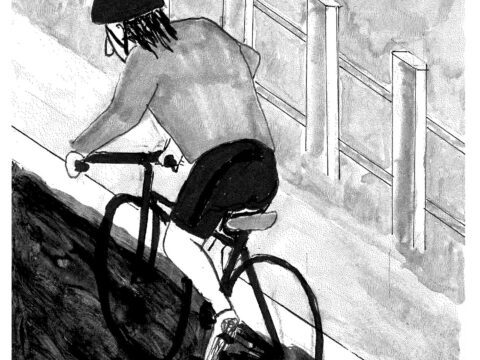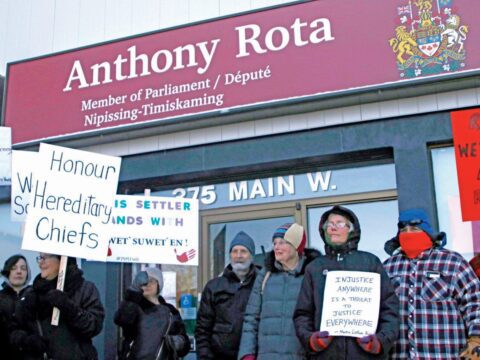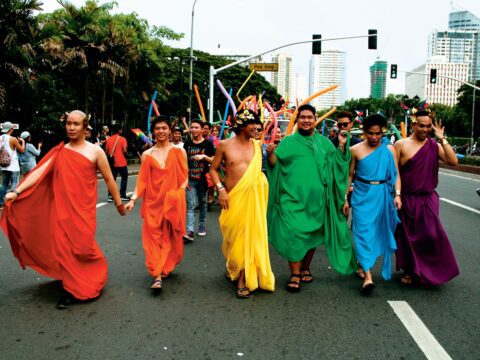Mustafa Farooq is the chief executive officer of the National Council of Canadian Muslims (NCCM), a civil liberties and advocacy group. Hailing from Edmonton, the 29-year-old lawyer is mounting the NCCM’s legal challenge against Quebec’s Bill 21, which bans certain public servants from wearing religious symbols while working. He’s also writing a book on countering radical extremism. Farooq spoke with Maria Iqbal about religious freedom in Canada, his discussions with Islamophobes and where he hopes to take the NCCM next.
Maria Iqbal: You joined the NCCM in April 2019. How did you get involved with the organization?
You may unsubscribe from any of our newsletters at any time.
Mustafa Farooq: I was working as a clerk at the Federal Court of Canada, where I was quite enjoying myself, when the opportunity arose to come on with the NCCM. Since I was a child growing up, it was always impressed on me that I have a great amount of privilege living in this beautiful country, and it’s my job to give back whatever way I can.
I was blessed to have an amazing family who sacrificed so much for our happiness as kids, to make sure we got the best education, and to make sure that we were always safe and comfortable to pursue what we wanted to. I recognize that’s a privilege that not everybody gets. Given that, I decided to spend some time working at the NCCM.
We defend the civil liberties of all Canadians, so that other kids who want to become whatever they want to be, whatever faith community they belong to, can feel safe and secure in this country.
MI: What role has your faith played in influencing where you are today?
MF: An enormous role. I identify as part of the Sunni community — but our staff at the NCCM is pretty reflective of the diversity of the Canadian-Muslim experience. I would say that my faith informs my approach to activism. It informs my approach to justice and fighting for a more equitable society. It informs the way that I interact with my family and the way that I interact with my friends.
But more than anything else, it informs the way I engage in dialogue. We’re told in the Qur’an: “Come to a word common between us and you.” I think in the times that we’re living in, in such a polarized atmosphere, my faith and the concept of coming to common words — common understanding and seeing the humanity that all of us have — is so important. That’s why we take a lot of time to make sure we’re not just engaging in the politics of outrage. We’re much more interested in engaging in the politics of justice and the politics of love.
MI: What do the politics of love look like?
MF: Our approach is always to focus on trying to first engage in dialogue and discussion with everyone, regardless of where they come from. For example, I’ve had conversations with Islamophobes who call and wish harm on me and on the Muslim community. Last year, someone called me and said, “I can’t wait to see you hanging from a tree.” I called the individual back, and we had a very long conversation about what was going on in his life that led him to make such a death threat. I think he walked away a little bit better informed.
I’ve engaged in long, difficult conversations. Sometimes those go well, and sometimes they don’t, but we always believe in engaging in conversations with everyone, even when they’re uneasy, even when they’re difficult, even when they feel incredibly unproductive. That’s not an easy line to walk, for me, or for anyone who fights against racism and injustice.
I don’t think there’s necessarily one right answer, but my faith certainly informs the way that I see these kinds of interactions occurring.
More on Broadview: Life as a part-time hijabi
MI: You’ve been fighting Bill 21 in Quebec. The NCCM has called the bill “one of the biggest attacks on civil liberties in Canada in a decade.” Why?
MF: The fact that in 2020 a Jewish man can’t wear a kippah and become a teacher in Quebec is simply outrageous and disgusting. It’s unprecedented for Quebec to use the notwithstanding clause [a part of the Canadian constitution that allows governments to override certain sections of the Charter of Rights and Freedoms] to attempt to build a second-class citizenship affecting Jews, Muslims, Sikhs and Christians who wear a religious symbol and try to give back to the public service in certain professions.
What’s fundamentally at stake is the role of government in regulating minorities by using the notwithstanding clause. When governments can use the clause to deprive citizens of rights that are fundamentally important to who they are as human beings, that’s a cause that everyone, whether they’re religious or non-religious, should be worried about.
MI: Supporters of the bill say government services can be delivered more equitably if the state is seen as neutral. What’s your response?
MF: Quite simply that a neutral state doesn’t discriminate. The reality is that Bill 21 really represents the policing of marginalized folks. It represents second-class citizenship. It’s quite the opposite of a neutral state.
MI: Is there anything that has surprised you since you’ve launched the legal challenge?
MF: The most powerful is the resilience of our people around Canada. I think people in the future are going to look back at people like Amrit Kaur, a Sikh woman from Quebec who had to choose between her faith and her [teaching] profession and ended up moving to British Columbia.
They’re going to look at people like Nour Farhat, a lawyer who’s now passionately fighting for her rights to wear the hijab and to become a prosecutor. They’re going to look at these folks who face an enormous uphill battle and tremendous odds, but who stand for their rights and their liberties even when it doesn’t appear to be the easy path at the moment.
“If we’re not talking, if we’re not listening to each other and if we’re not learning from each other, then we’re doing it wrong.”
MI: What are you looking for from the federal government on this issue?
MF: What we would expect to see at a minimum is clear and consistent condemnation. During the course of the federal election, we asked each party leader to host a press conference denouncing Bill 21 and to talk about what they would do to stop it, because it is the responsibility of every Canadian leader who steps up to public office to say what they are doing to protect civil liberties in Quebec.
All the major federal parties condemned the bill except the Bloc Québécois, though the response could have been more consistent.
It’s also important that the government takes a good look at the rise of violent white-supremacist organizations like the Three Percenters, who are actively training with live ammunition for this “apocalyptic showdown” with the Canadian Muslim community.
We’d also like to see a reformation of some of the ways that national security organizations operate. We’re calling for more transparency in CSIS and recommend mandating a diversity, equity and inclusion audit in the organization, for example.
MI: But it’s not just about pressuring the government to act, is it? How can you change people’s attitudes?
MF: There’s a whole-society approach required to foster a better environment. That’s why the NCCM strongly believes in the value of education. One of our staffers spends a lot of time going to schools, employers and unions to talk about what it means to live in a diverse, beautiful and accepting society like Canada. That person also engages with people who have important questions about Muslim practice.
If we’re not talking, if we’re not listening to each other and if we’re not learning from each other, then we’re doing it wrong.
MI: What direction do you hope to take the NCCM?
MF: We want to continue to stand for the rights of all Canadians. We want to continue to learn from our diverse communities. We want to lower rates of discrimination and racism and Islamophobia in Canada. We want to build a more vibrant Canada, where we’re building each other up, not tearing each other down.
This interview has been edited and condensed for clarity. It first appeared in Broadview’s June 2020 issue with the title “The politics of love.”
Broadview is an award-winning progressive Christian magazine, featuring stories about spirituality, justice and ethical living. For more of our content, subscribe to the magazine today.















At the very outset Mustafa identifies himself as a sunni. I wish he identified himself as Muslim rather than believing in groups and fiqahs. His argument for equality in society for all citizens will not have weight unless one practices the same in his own faith. We are Muslims because of our great prophet who was neither a sunni nor shia. Holy Quran saysو بحبل الله جميعا ولا تفرقوا then why practice division and not unity. Once we are united, the world will listen to us